New Scientist covers the latest developments in science and technology that will impact your world. New Scientist employs and commissions the best writers in their fields from all over the world. Our editorial team provide cutting-edge news, award-winning features and reports, written in concise and clear language that puts discoveries and advances in the context of everyday life today and in the future.
Elsewhere on New Scientist
Evolution evolves • But that doesn’t mean our central theory of life on Earth is wrong
New Scientist
One of the largest eggs ever laid
Antarctic ice is at a crisis point • The past two years have seen unprecedented falls in the levels of sea ice around Antarctica. Researchers are now racing to understand the global impact of what could happen next, says James Woodford
Chilling statistics • The Antarctic’s maximum sea ice levels hit a record minimum in 2023, and fared little better in 2024, compared with long-term averages
Life on Mars could be surviving in an area deep underground
Altering one number among billions can destroy an AI model
Analysis Avian influenza • Bird flu may be adapting to become more infectious to humans Three people in North America without known animal exposures have tested positive for H5N1, and samples from two of them suggest the virus is adapting to humans, says Grace Wade
Older people may have better immunity against bird flu virus
Early human species lived side by side • Footprints preserved on a lake shore in Kenya seem to be from two ancient hominin species, showing they lived there at the same time about 1.5 million years ago, finds Michael Marshall
A dose of fear can bring down inflammation levels
Social media algorithms can change your views in just one day
Deeper waters are being touched by ocean acidification
Gene editing may be easier in utero • Treating severe inherited conditions with gene editing while a fetus is in the womb could be more effective than the same treatment after birth, finds Michael Le Page
Fossilised droppings reveal how the dinosaurs came to rule Earth
Data stored in diamonds could last millions of years
Pandemic lessons • Five years after the first covid-19 cases, we need to fight back against the quiet epidemic of suppressed science, says Dali L. Yang
Future Chronicles • Fly me to the moon We journey to 2055, when a space elevator from the moon’s surface to near-Earth orbit was completed, democratising space in the process. Rowan Hooper is our guide
Great Catesby
From the big screen… • Forget Megalopolis and Madame Web. The best science fiction films of 2024 were all horror-inflected, says our film columnist Simon Ings
…to the small • This wasn’t a stellar year for science fiction television, but there were diamonds to be found amidst the rough, says our TV columnist Bethan Ackerley
Let the games begin • From horror on a North Sea oil rig to the adorable Astro Bots, our video games columnist Jacob Aron had a lot of fun in virtual worlds this year
Your letters
DIY evolution • Natural selection of random genetic mutation isn’t the only way to adapt, argues evolutionary biologist Kevin Lala
Enhanced adaptability
Dripping with promise • Monitoring your sweat could reveal incredibly useful insights into the state of your health, finds Graham Lawton
THE EVERYTHING DRUG • From Alzheimer’s and heart disease to depression and fertility, weight-loss drugs like Wegovy seem to have wide-reaching effects. But how do they actually work? Helen Thomson investigates
Alien plate tectonics • Plate tectonics may be key to the origin and survival of life on Earth – but do any other planets undergo this crucial process, asks...

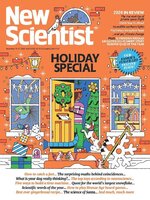 Dec 14 2024
Dec 14 2024
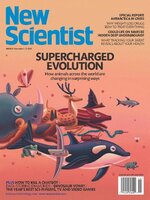 Dec 07 2024
Dec 07 2024
 Nov 30 2024
Nov 30 2024
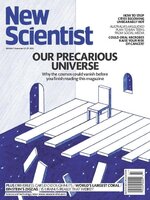 Nov 23 2024
Nov 23 2024
 Nov 16 2024
Nov 16 2024
 Nov 09 2024
Nov 09 2024
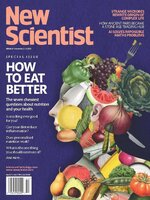 Nov 02 2024
Nov 02 2024
 Oct 26 2024
Oct 26 2024
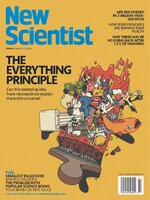 Oct 19 2024
Oct 19 2024
 Oct 12 2024
Oct 12 2024
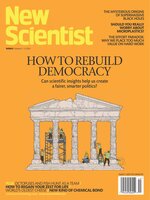 Oct 05 2024
Oct 05 2024
 Sep 28 2024
Sep 28 2024
 Sep 21 2024
Sep 21 2024
 Sep 14 2024
Sep 14 2024
 Sep 07 2024
Sep 07 2024
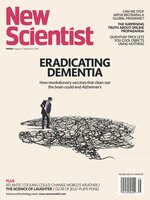 Aug 31 2024
Aug 31 2024
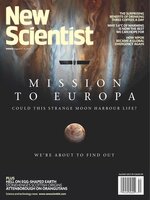 Aug 24 2024
Aug 24 2024
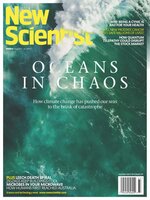 Aug 17 2024
Aug 17 2024
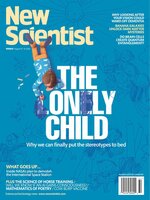 Aug 10 2024
Aug 10 2024
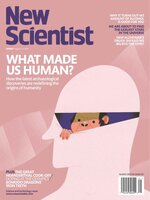 Aug 03 2024
Aug 03 2024
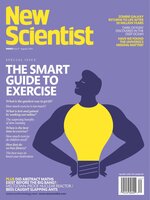 Jul 27 2024
Jul 27 2024
 Jul 20 2024
Jul 20 2024
 Jul 13 2024
Jul 13 2024
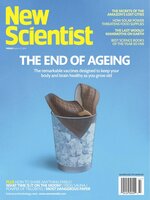 Jul 06 2024
Jul 06 2024
